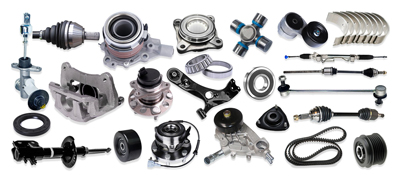Regularly changing the engine air filter is essential for maintaining your vehicle’s performance. The primary function of the air filter is to filter out dust, debris, and contaminants from the air, ensuring that the engine receives clean air. If not replaced for a long time, the filter can become clogged, restricting airflow, which leads to decreased engine efficiency, increased fuel consumption, and even potential engine damage. Here’s what can happen:
1. Reduced Engine Performance
Restricted Airflow: Over time, an engine air filter gets clogged with dust, dirt, and debris, which restricts the airflow into the engine. Engines need a proper air-to-fuel ratio for optimal combustion. If the air filter is dirty or clogged, the engine will receive less air, which can cause it to struggle, reducing overall performance.
Loss of Power: Reduced airflow can lead to sluggish acceleration, poor throttle response, and a noticeable drop in engine power.
2. Lower Fuel Efficiency
Increased Fuel Consumption: With a clogged air filter, the engine compensates by using more fuel to maintain the same power output, leading to decreased fuel efficiency. This means you’ll have to fill up the tank more frequently.
3. Engine Misfires or Rough Idle
Imbalanced Combustion: Insufficient air can lead to incomplete combustion, which may cause misfires or a rough idle. You might experience engine hesitation when accelerating or a rough, uneven idle.
4. Increased Emissions
Poor Combustion: A dirty car air filter can result in incomplete combustion, which can lead to an increase in harmful emissions, such as carbon monoxide and unburned hydrocarbons, being released into the environment.
Check Engine Light: In some cases, a clogged air filter may trigger the “check engine” light due to sensor malfunctions or issues with the exhaust system.
5. Engine Damage
Contaminants Entering the Engine: If the engine air intake filter is too dirty or damaged, it may fail to filter out harmful particles like dirt, dust, and debris. These contaminants can enter the engine and cause internal damage, leading to excessive wear, particularly on critical engine parts like cylinders, pistons, and valves.
Long-Term Damage: Prolonged exposure to unfiltered air can cause premature engine wear, ultimately shortening the lifespan of the engine and potentially requiring costly repairs.
6. Decreased Acceleration and Throttle Response
Lag in Throttle: Without a clean, properly functioning air filter, the engine won’t respond as quickly when you press the gas pedal, as it’s not getting enough air to produce the power you expect. This can lead to a sluggish and less responsive driving experience.
Not changing the engine air filter regularly can lead to a variety of issues, including reduced engine performance, lower fuel efficiency, increased emissions, and potentially costly engine damage. To maintain your vehicle’s optimal performance, it’s essential to replace the air filter according to your manufacturer’s recommended schedule (usually every 12,000 to 15,000 miles, but it can vary based on driving conditions).

 Twitter
Twitter
 Facebook
Facebook
 Linkedin
Linkedin
 Google +
Google +



